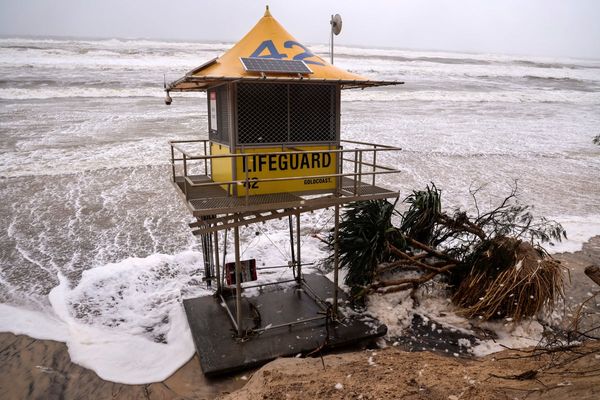President Donald Trump's global tariffs are putting supply chains under the microscope as companies gauge whether to halt shipments or to quickly get them underway before the tariffs go into effect on April 9.
S&P Global reported late last week that some U.S.-shippers are keeping products in Asia as they wait to see if Trump will reduce the tariffs the U.S. president levied against myriad countries on Wednesday.
Among Atlantic supply chains, British carmaker Jaguar Land Rover said Sunday it will pause U.S. shipments for a month as it assesses Trump's auto tariffs. Meanwhile, Howmet Aerospace, which supplies parts for planes built by Airbus and Boeing is reportedly considering stopping some shipments, according to a Monday Reuters story.
Some are also accelerating shipments. An unnamed source, referring to U.S. buyers, last week told the Journal of Commerce that "customers are shifting volume from (full containerload) to (less-than-containerload) to get goods here before April 9."
According to Journal of Commerce, some businesses are "booking air to get ahead of the tariffs" while others are pulling back orders.
"Some vendors are pulling back on DDP (delivery duty paid) shipments to renegotiate on price," the anonymous source said.
Trump Tariffs And Global Supply Chain
Hong Kong Financial Secretary Paul Chan told a group of reporters on Monday that the Trump tariffs have disrupted global supply chains and severely impacted the global economic recovery process.
Last week, Evercore ISI analyst Michael Binetti wrote in a note to investors that Trump's tariff plan put retailers and apparel manufacturers in a difficult situation due to the global nature of their supply chains.
Binetti wrote that Gap, On Holding, Lululemon and Deckers Outdoor are "worst positioned," largely due to Vietnam sourcing. The analyst added that Nike has "a lot of issues to solve to turn its brand around right now," but the company has "the best chance at negotiating a deal with the Trump administration as a big U.S. employer."
Broadly, the Trump tariffs are beginning to force a complete rethinking of individual supply chains, according to S&P Global. The firm's preliminary research suggests that toys and video games will have an average duty rate increase of 30.4% with computer parts coming in at nearly 30%. S&P Global forecasts clothing products to see a tariff increase between 28%-37% while smartphones could see a 27% average duty increase.
"Many of the products that are excluded from these new duties will face their own tariff reviews and may end up with duties of around 25%, including copper, lumber, pharmaceuticals and semiconductors, after the reviews are completed in a few months," Chris Rogers, head of supply chain research at S&P Global Market Intelligence, wrote on Thursday.
Stock Market Responds To Trump Tariffs
Trump tariffs triggered a global sell off that continued through Monday. In the U.S., least week was the worst week for the major indexes since the March 2020 Covid crash. The Nasdaq and Russell 2000 tumbled into bear market territory, with the Dow Jones and S&P 500 moving that direction. Treasury yields dived with crude oil plunging to the lowest since 2021.
Buckle Up: What Trump Tariffs Mean For The U.S. Economy And Stock Market
The major indexes swung wildly in Monday's stock market action. The Dow, Nasdaq and S&P 500 opened sharply lower, then rebounded into positive territory midmorning after comments attributed to White House economic adviser Kevin Hassett that Trump could be considering a 90-day pause to tariffs.
Trump's 10% baseline tariffs on all trading partners started Saturday, with the much-higher bilateral rates for most partners beginning April 9. The president announced the massive tariff hikes on Wednesday, pushing average U.S. rates to the highest in a century. Those and other Trump tariffs will have a massive impact on the economy and prices, significantly raising the risk of recession or stagflation.
JPMorgan now expects the U.S. to fall into recession in 2025 due to Trump tariff impacts. Goldman Sachs on Monday raised its expectation to 45% chance of a recession, but would expect a recession if most of the April 9 tariffs go into effect.
YOU MAY ALSO LIKE:
Is Tesla Stock A Buy Or A Sell?
Get Full Access To IBD Stock Lists And Ratings
Learning How To Pick Great Stocks? Read Investor's Corner
AI Is Fueling A 'Nuclear Renaissance.' Bill Gates And Jeff Bezos Are In The Mix.
The Lithium Price Cycle Has Bottomed. What To Expect Next For These Stocks.







